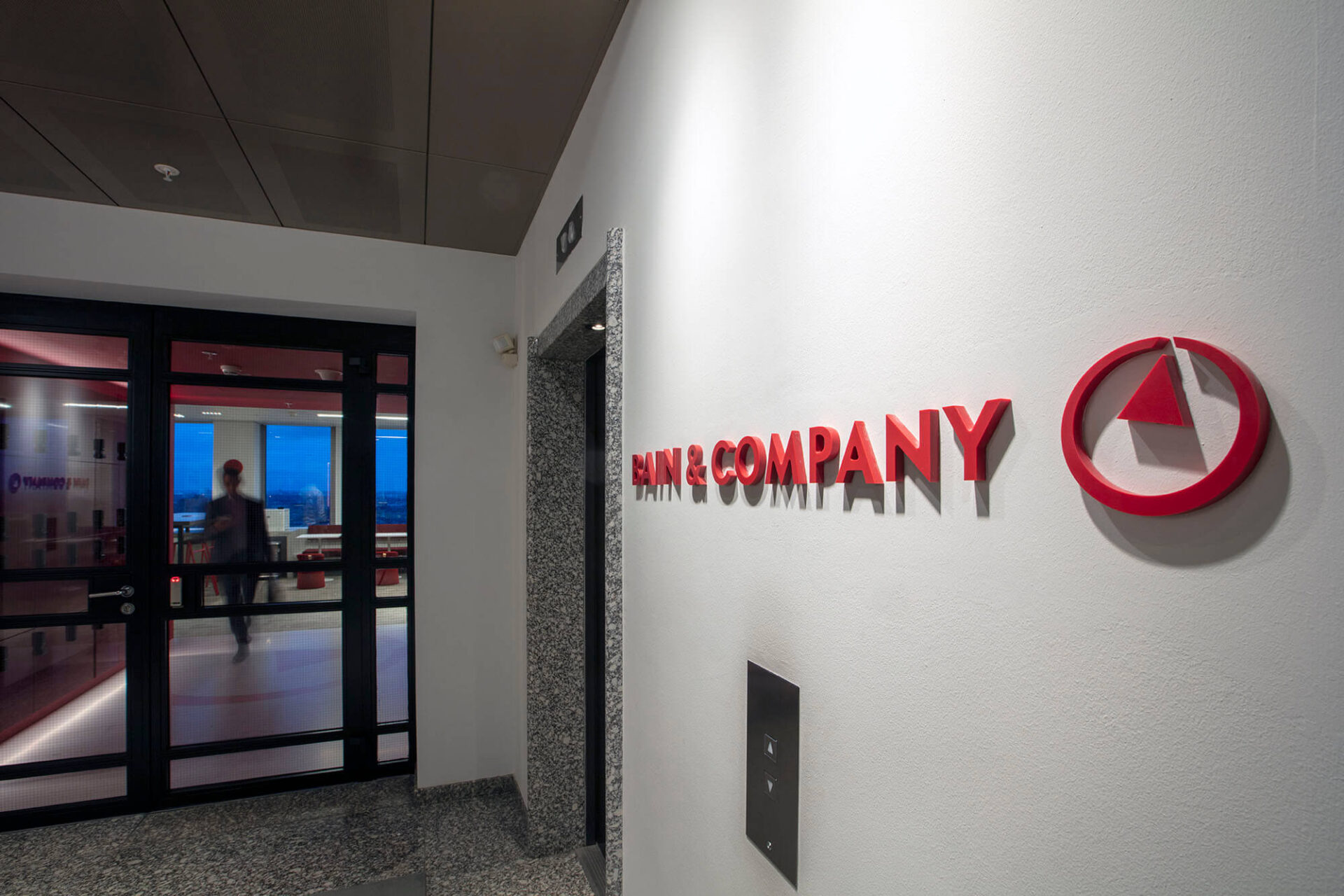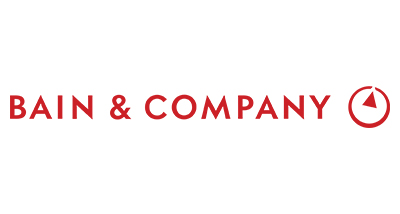
Career advice from Bo Budé
Published on: 20 Jul 2021
How do you combine a young family with a top career as a strategy consultant? And why would you choose that when you can also build a great career in another field? Top of Minds interviewed Bo Budé, senior manager at Bain & Company, about that very topic. “I want my career to be diverse, challenging and instructive.”
Tip 1: Seek out co-creation
There’s a well-known preconception about consultants: they come in with a group, do some abracadabra in Excel and PowerPoint, and then the final product disappears into a drawer. It’s a stereotype that makes Bo laugh. “That’s a caricature. But we sometimes hear from clients that their experience with consultants in the past has been mixed because the client wasn’t really involved in the solution. That’s why ‘co-creation’ with the client is so important at Bain. We’re not meant to work as an external team in a cocoon. The client entrusts us with important strategic issues, and we can only solve them permanently if we work together.”
Bo also sees that as one of the best things about her job – and it’s the reason she chose Bain. “I interviewed at competitors, too, and they were all fairly traditional. But during the interview process with Bain, I was standing in front of the whiteboard with a senior partner solving the case. That gave me so much energy, and I knew: this is where I want to work.” Her most enjoyable project to date was, not coincidentally, one that took co-creation to the extreme. Bo continues, “The collaboration was so strong that the distinction between the consultants and the client seemed to disappear. Together, we not only solved the original problem but also gradually brought about lasting changes in the way the client worked.” “But that kind of coaching isn’t a one-way street,” Bo adds. “Mutual feedback is an important part of our approach. That means mutual, non-hierarchical feedback between team members but also an open feedback culture between the consultant and the client. As a manager, I try to push for that as much as possible.”
“The client entrusts us with important strategic issues. We can only solve them if we work together. That includes an open feedback culture.”
Resume Bo Budé
2013-heden
Consultant en (Senior) Manager, Bain & Company
2009-2013
Various functions, Stork Technical Services
2012
Courses in Corporate Finance, London Business School
2008
Trainee, Unilever
2007
Business Analyst Intern, Accenture

Tip 2: Follow your interests, not your ego
Bo had considered strategy consulting early on in her career but chose to make her mark in industry first. “I thought it would be fun to run my own unit at a large company. Stork had a good traineeship program, which fit well with my technical background. I learned so much there. I worked directly for the CEO and eventually had my own unit. I joined the management team as business improvement manager and then got the chance to lead the Australian division. But, having learned a lot over the years, I started to miss the intellectual challenge. Through a connection within Stork, I started talking to a number of strategy firms. That reignited my ambition for strategy consulting.”
Bo acknowledges that, for her, as for many industry hires, this seemed like a step backwards at first. “I was responsible for an entire unit, and then I joined Bain just as a consultant on a team. I suddenly didn’t have a managerial role.
For people with several years of leadership experience, this can sometimes be a difficult transition. The trick is to put your ego aside. One thing Bain can promise is that you’ll always be challenged. You won’t be underestimated, you’ll suddenly find yourself in a job where, despite your impressive experience, you’re actually a beginner. Or rather, in some areas you’re a beginner, while in others you’re way ahead of your peers. Don’t be afraid to take on that learning curve. You’ll find you can make progress very quickly. That promotion, those management tasks, they will come.”
Conversely, it may also be that someone with considerable substantive or intellectual experience has never held a leadership position – brand new PhDs, for instance. According to Bo, that’s not a problem. “Once you’re a manager, you’re given plenty of coaching from the partner on the team. And there’s still a lot of learning on the job. But you also get manager training to begin with. You’ll find that that learning curve comes naturally.”
Tip 3: Be a coaching leader
According to Bo, the role of senior manager at Bain is primarily to keep the team moving in the right direction. “It’s mainly a matter of managing content, and good stakeholder management. My job is to make sure that solutions actually bring about change for the customer. And at the same time, I have to engage the internal team and partner group in the right way. At Bain, everyone is intrinsically motivated. I have to manage that energy, and sometimes temper it, to protect my team members from themselves.” That requires quite a different management style than her previous job. “At Stork, sometimes the mechanics just didn’t show up at the client site. So I was forced to constantly motivate. At Bain, it’s mainly about making sure everyone is doing the right thing. I think it’s important as a manager to let the team members shine. I don’t need to be in the spotlight. I like to let junior team members come up with good ideas and develop those concepts themselves. On the one hand, because they are on the team for a reason – junior or not, they’re all smart and have unique insights. On the other hand, it’s also my job to facilitate their professional development.”
That’s part of why Bo loves her job so much. “Simplifying and solving problems energizes me. That’s the content side. And so does coaching people to be better at their job. At Bain, everyone gets the chance to develop and pitch important insights. Even as a junior team member, you can have a lot of influence on that. Don’t be afraid to say what you think. That’s exactly what is expected of you.”
“A good manager doesn’t need to be in the spotlight, but instead should let their team shine.”
Tip 4: Set boundaries to maintain balance
Bo is a mother to two young children, and – like a lot of her colleagues in Bain’s Amsterdam office – works part-time. “On Wednesdays, I’m at home. I’m very clear about that to my team and my clients: call or text if you really need me because I won’t answer emails until Thursday. Of course, it’s the nature of the work that I have to be available – the responsibilities don’t stop. The option to work part-time allows me to maintain a healthy balance. I don’t want to have a nanny or au pair. On the other hand, I am willing to be flexible in the evenings. So, I sometimes spend a few hours at home on the laptop in the evenings.” As a young parent, Bo isn’t struggling to cope. “That acceptance of working part-time is an important part of retaining consultants with (young) children. That’s just as true for men as it is for women. But Bain does more to promote diversity. For example, we have a sponsorship program for women, Women@Bain activities focused on networking and development, and ‘unconscious bias’ training, which, by the way, is about so much more than gender.”
Tip 5: Keep challenging your employer and identify opportunities for improvement
And yet the question remains, how can diversity continue to be promoted and facilitated. Bo: “The Amsterdam office is doing a great job within Bain worldwide in terms of diversity policy. But it’s still not enough, so we need to keep working on that. I believe it’s good to see more women in all layers of the pyramid. The question of how we are going to get that done in the near future is an interesting and important one.” For Bain, it’s a priority. “It’s good to name it and to actively think about this issue. Because as consultants, it affects all of us. It’s not an issue we can put down to HR and wait and see. We need to take an integrated approach to it and ask ourselves: what role does recruiting play? Or the partner group? Or team members? And what role do I play, as a manager?”
Nevertheless, Bo does not experience her work environment as a “man’s world.” “I studied in Eindhoven surrounded by mainly men. The same was true at Stork. So Bain already feels much less like a man’s world to me. I think it’s especially important that the work is fun and challenging, that I continue to learn, and that I can maintain the right balance to spend enough time with my family. I don’t have a fully fleshed-out plan for the future at the moment – my youngest child is still a baby. I’ll see what the future brings. I’m energized every day by the challenges I find at Bain.”
